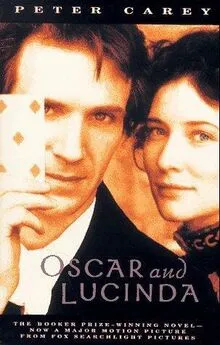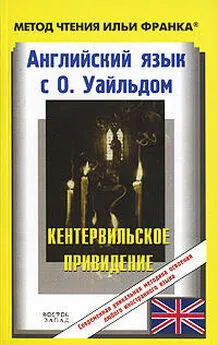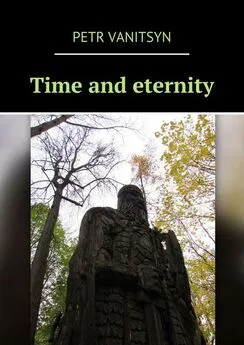Peter Carey - Oscar and Lucinda
- Название:Oscar and Lucinda
- Автор:
- Жанр:
- Издательство:Vintage Books
- Год:1988
- Город:New York
- ISBN:0-679-77750-4
- Рейтинг:
- Избранное:Добавить в избранное
-
Отзывы:
-
Ваша оценка:
Peter Carey - Oscar and Lucinda краткое содержание
The Booker Prize-winning novel-now a major motion picture from Fox Searchlight Pictures.
This sweeping, irrepressibly inventive novel, is a romance, but a romance of the sort that could only take place in nineteenth-century Australia. For only on that sprawling continent-a haven for misfits of both the animal and human kingdoms-could a nervous Anglican minister who gambles on the instructions of the Divine become allied with a teenaged heiress who buys a glassworks to help liberate her sex. And only the prodigious imagination of Peter Carey could implicate Oscar and Lucinda in a narrative of love and commerce, religion and colonialism, that culminates in a half-mad expedition to transport a glass church across the Outback.
Oscar and Lucinda - читать онлайн бесплатно полную версию (весь текст целиком)
Интервал:
Закладка:
He prayed he might be spared the hellfire.
His neighbours in the boarding house complained about his behaviour. They heard him groaning. They did not see the backs of his hands and if they had it is unlikely that they would have recognized the cause of the wounds thereon. You would need to have lived in a contemplative order to understand that these deep wounds are made by the nails of one hand attacking the back of the other. Not stigmata, but the stab wounds of prayer.
And yet he also, at the same time, on the same day, went to the racetrack. He bet on Falcon and Presto and Maid of the Lake and believed all the time it was (it must be) an offence against God who had smitten him on account of it. He felt the surge of those exhilarating chemicals which his body knew were manufactured at the racecourse, but he did not bet because he sought pleasureon the contrary, he feared it-but because he was desperate and had no other way to support himself.
You cannot bet effectively by day if you are to fear hellfire in the night. Any anxiety of this order prevents the proper functioning of those analytic skills which are a punter's only asset. So of course he lost more than he won, and it did not matter that he hung around the stableboys and jockeys, paid them a shilling for their friendship, that he studied the form as if he were cramming for Bigs at Oriel-he spent the two months of the racing carnival in very poor condition and was swooped by magpies at the start of the Drapers' Purse.
He lost weight although he did not have a lot to lose. His collar hung like a harness around his neck, and he walked in the way of men who would wish to be invisible, close to the walls of buildings, with hands deep in pockets and eyes forever caught at that point where the foundation stones of the buildings rise from the edge of the pavement. And it was in this condition that Lucinda found him, although he did not have the comfort of a wall to walk beside, was quite exposed on all sides as he hurried across the yard at the back of the post office. The Bombay, two weeks late with the English mail, had arrived the day before and so everyone was crowded round in George Street where the mail was collected. The yard was quite deserted. There was no throng to give him shelter from inquisitive eyes which might recognize the cut of his grimy broadcloth as belonging to a higher calling. The nervous and defeated
272
The Good Samaritan
demeanour of its wearer was at once perfectly in keeping with the letter he had come to post and, also, completely out of keeping. An observer would never have suspected the educated tone, i.e.: Dear Papa, I am so sorry to have caused you, by the extended silence which this epistle will now serve to end, so much anguish. You will think, when you put these pages down, that I am destined for that eternal fire of which we have been forewarned. I must confess that I feel myself to be an inhabitant of a purgatory through which I journey, the one hour in deep despair, even terror, the next in a state of (perhaps unhealthy) exaltation that he who has vouchsafed my soul shall see fit, for all my sins, to redeem me yet.
But, my most dear pa, I have a request to make of you, and it is to write to me, but to forebear doing so in that manner which your fond heart will first incline you toward, for I know that your most loving inclination will be to instruct me on the steps I must take to save my immortal soul. This advice I will most surely cherish, and I do not ask you to neglect your stern duty, but also, in a postscript if you like, to write to me about the little lanes of Hennacombe wherein we three once walked so happily.
I am homesick for hedges and birds with pretty melody, for the lovely chalky blue sky of England. This colony seems so hard and new, all newly broken ground, much clay and sandstone, but nothing yet to make the soil friable. The birds are bright but raucous. Everything is lacking in gentility and care, and society as a whole (although better dressed than anyone in England could imagine) seems little concerned with the common good, only individual benefit. This view is perhaps unnecessarily bleak and I pray it is a distortion caused by the unhappy predicament I now hnd myself in. However it does seem that there is nothing for a man to do once he has gained the reputation that has been so unjustly given to me. Such was the weight of the detailed confession that followed that it was no wonder he walked in such a leaden way that Lucinda, who had been thinking of him constantly ever since she had found the "scandal" in the Sydney Mail, did not recognize him. She had not immediately recognized him in the Mail for that matter. She saw the name, of course-Hopkins, but she did not think of him as Hopkins but as Crab, the creature who had scuttled sideways towards the porthole he was so in terror of. She read of Judd, the Reverend Mr Hopkins, and unknown "lady," and it was a full minute before she saw who and what it referred to.
773
Oscar and Lucinda
"Oh, dear God, forgive me," she said. She was sitting in her kitchen at Longnose Point. She did not bother to thnk where the maid might be but went, straight away, on her knees and pushed her hands into her eyes and rubbed at them as if she might, in making all this lightning in the blackness, undo what she had so carelessly done.
She thought: I should not be allowed abroad. This is the second man I have ruined. She sat up and folded the Mail in her lap. She would go, this instant, to Randwick and apologize, or to the Bishop or whoever was important in the matter. Her next thought was that she must stay away and not compromise the poor nan any more. Her third thought-and this was the one that she finally acted upon-was that she must present herself and see what aid she might render. She dressed herself in her most drab and proper clothing, an unpleasant brown wool and a severe black bonnet which only served, against her best intentions, to accentuate her lovely complexion so it was, like a Ribstone pippin, a soft underwash of crimson overlaid with murrey brown. She drove herself out to Randwick. There she encountered not the Reverend Mr Hopkins but Mrs Judd who stood her ground high on the veranda and would communicate nothing except the pleasure of finding herself in so obviously powerful a position.
Lucinda drew her whip along her gelding's flank and sped out of the vicarage, rattling the cattlegrid and leaving a cloud of talcum-fine clay dust for Mrs Judd to sweep off her veranda. She thought: I have made it worse. She thought: I will leave it alone. She made towards the ridge road through Darlinghurst, intending to visit the glassworks. She did not articulate this to herself, but her face, which had, through the agency of her tense upper lip, grown long, now softened and regained its more usual contours. The idea of this visit to the glassworks was a formless, nameless, anticipated pleasure, such as a tobacco addict has when coming out of church. It was the next thing. The next nice thing. But it was only a habit, and when she saw what it was she had been thinking she saw that the packet was empty. It was three weeks since she had promised Arthur Phelps-he who called his gut his bellows-that she would mot visit the works. How had she promised such a thing? Was she not the owner, after all?
Arthur had kept his broad hands busy with his tobacco and papers. His eyes had been absorbed by the business of licking and lighting, he had not looked at her, but she had looked ait him, at the great sweating girth encased in wet hessian bagging, at the male, foreign otherness of his white-haired skin. He had spoken to her-all the time
The Good Samaritan
fussing with a dainty cigarette he could have attended to blindfoldwith great politeness and discomfort. He had taken her out into the yard where the window glass was being packed into wooden crates. The wood was newly sawn and sweet and sappy in the spring air. Yellow straw was lifted by the nor'easter and hung like scratches in the sky. Arthur kicked at the dry rutted clay with his big blunt boots.
Lucinda waited for him. She saw he had a great sense of his own authority, a "natural" sense, far greater than that which would lead her to book a first-class cabin.
When he had finished fussing with his little cigarette he lit it within the sheltered cup of his hand.
"Mum," he said, "it is better if I am sent for and come to see you at your office." The timber mill next door screeched, a long shrill line of pain up the heart of a new cedar log. Arthur had gone to work there before. If he did not like it at the works he could, doubtless, find work at the mill again.
"You mean no harm, mum, I grant you. But it makes my boys be edgewise and standing on politeness, and then we see the gob-gatherer get the gob wrong and the second blower have his walls uneven and the item not worth taking further, mum. They are poor ignorant lads, and easily distracted by a lady."
This simple speech made her feel a despair too deep for tears, or even anger. Her mouth opened.
"If by chance you wish to visit," Arthur said, "then perhaps, mum, you let it be known aforehand."
"How long aforehand, Arthur?" She watched the glasspacker. He was using insufficient straw.
"Oh, just one day, mum, no more. You let it be known, and we will be ready for you, mum, and a proper inspection it would be, mum, like in Her Majesty's Navy, and not all rags and bags and odd socks either-all lined up and shipshape."
"But this is my business, Arthur." There was no edge to her voice-a voice that was often thought to be too easily icy or sarcastic. There was no will. Her eyes were dry and scratched like the straw-littered sky. "I am the proprietor."
And Arthur Phelps said: "I know, mum, but it be our craft, mum, you see. It be our craft." And she had accepted this. She had accepted because she could never forget the emptiness, the hollowness which had occupied the very centre of her being when she had returned from London and found the works empty, the furnaces cold, and that kitten-the murdering
Oscar and Lucinda
crunch of its skull was part of the same feeling-that loneliness, sickness, with nothing bright or soft or sympathetic. She knew she should not have accepted Arthur Phelps's demands. She was angry that she had. She now went to the works at night when the firemen were working, stoking the furnaces or, sometimes, putting in a new clay crucible. She made the firemen uneasy, too, but they had not the conceit or the craft, and dared not ask her to leave the wooden throne on which Arthur drank his pints and practised his trade. It was warm and dry in the works. She was there almost every night. She brooded. And now she would brood about Oscar Hopkins as well. The furnace doors would swing open silently and clang shut abruptly. The firemen's shovels would scrape along the floor. She would sit on Arthur's throne and drink brandy from a flask. She would think of homes, homes she did not have, homes she had lost.
She day-dreamed of letters to the bishop which she did not send, advertisements in the personal columns of the Sydney Morning Herald which she did not place. She went to Ah Moy's but did not see him. She attended Homebush and Randwick. She gambled as if there were a horse that might, by the churning force of its hooves amongst the mud, blot out the pain she felt. She bet fiercely. She did not see him anywhere; and when at last she did, in the post-office yard, she did not recognize him, not at first. The gap between her memory of him and the figure he had become produced a most unsettling feeling.
Читать дальшеИнтервал:
Закладка:









